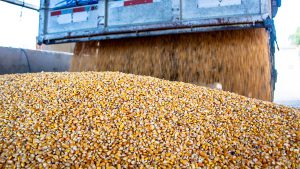Business side: Tax season update
CONVERSATIONS WITH BUSINESS EXPERTS

Allied Associates LLP, Chartered Professional Accountants
(J.M.) WHAT’S NEW FOR THIS YEAR’S TAX SEASON?
(W.R.) Whether you’re impacted or not, most farmers are aware of recent tax changes made to private corporations.
Most of the changes aimed at converting income into capital gains have been dropped. It’s still unclear how the measures restricting income sprinkling and holding passive investments will be handled until additional guidelines are released either later this fall or in the 2018 federal budget. We do know that the government will allow passive investment income of up to $50,000 inside an incorporated business before the higher tax rates kick in. Recent tax rate announcements indicate that the combined federal and provincial corporate tax rate for eligible small business tax deduction in Ontario will be 12.5% by January 2019 (on income up to $500,000).
There are also a number of other tax changes made that will impact some farmers significantly, including the new specified corporate income rules. Unless companies are already sharing the small business deduction because they are associated, corporations will be deemed to have specified corporate income whenever 10% or more of its total sales are made directly from another company and one of the shareholders of that company is related to the shareholders in the other company.
Whenever a company has specified corporate income, it will be taxed at a higher rate unless the purchasing company assigns a portion of its small business deduction to the receiving corporation. Without it, tax on this income could double.
ARE THERE ANY OTHER CHANGES THAT WILL AFFECT FARM BUSINESSES THAT AREN’T INCORPORATED?
Yes; in fact, we’re seeing changes to farmland property taxes that could impact any farmer, no matter the size or structure of the business. These changes relate to eligibility for the farm property class tax rate program. With so many incorporated farms now, it’s not uncommon for a farmer to purchase shares of another family farm corporation through their own corporation. Due to a recent court case, the farmland held in the purchased corporation may no longer be eligible for the farm property class tax rate program in situations where an individual does not own more than 50% of the voting shares in the acquired corporation. While in most situations, the corporation can easily be restructured to qualify, until that happens, the acquirer will be responsible for property taxes at the full rate.
We are also seeing situations where transfers of farmland between family members and/or their organizational structures are no longer qualifying for the land transfer tax exemption due to the fact that an individual must be reporting the income from that farm prior to the transfer.
ANY ADVICE FOR FARMERS TO HELP GET THROUGH TAX SEASON?
My best advice is to build a relationship with your accountant. The role of an accountant is to help farm businesses succeed by serving as a trusted advisor to farmers and their families. That means building a relationship that includes an understanding of the client’s business, goals, and values. It’s through this understanding that we can become an effective sounding board for business ideas, customizing our own knowledge and advice for each particular client, and helping our farm clients make the best business decisions for themselves and their families. •





















